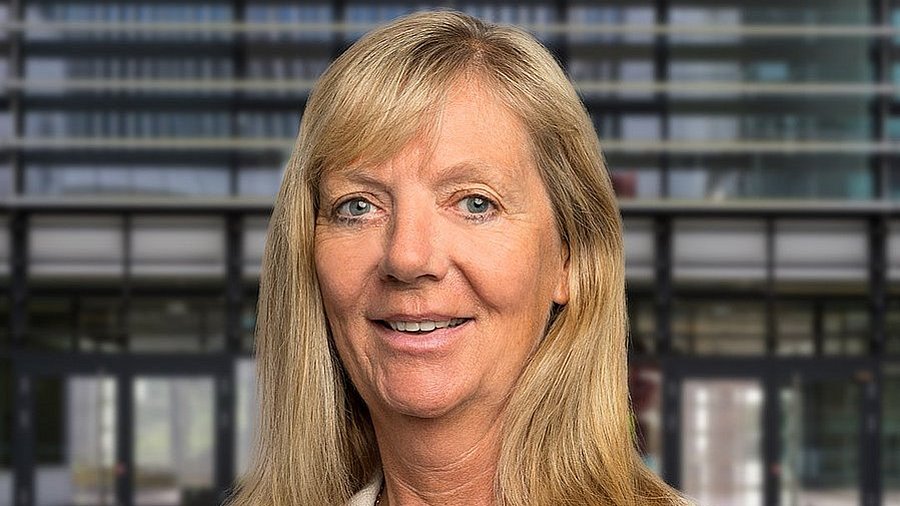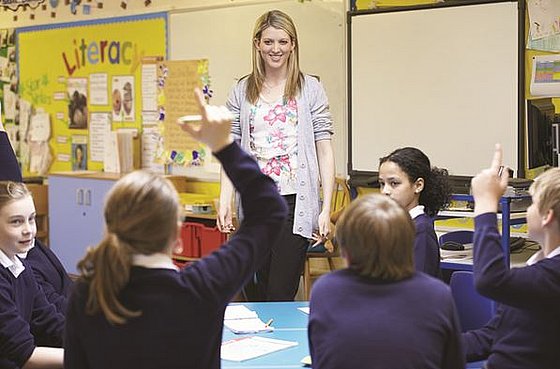
Tasks of school pedagogy
Prof Dr Petra Buchwald / Institute for Educational Research
Photo: Private
Schools must never give up their educational mission
Education researcher Petra Buchwald on the tasks of school education
School pedagogy should use useful methods to support the learning process of pupils in the best possible way to ensure their success at school. On the website of educational scientist Prof. Dr Petra Buchwald at the Institute for Educational Research (IfB) in the School of Education at the University of Wuppertal, it says specifically: "The aim of school pedagogy is to provide students with the necessary theoretical and empirical basic knowledge as well as concrete, practical instructions for various episodes of teaching. For over 40 years, the experienced scientist has been dealing with the recurring question: "What makes for good teaching?" The aim is to identify which sequences in relation to teaching activities can be used to show prospective teachers which theories exist that help to solve certain problems in certain teaching situations. "On the one hand, this is teacher-student interaction or something like classroom management, i.e. how do I organise my learning environment. But it's also expertise in educational psychology, because I need to know how pupils' personalities are made up. All of this plays into my teaching and I learn how to deal with it as a teacher."
Stress management
A central field of work in school pedagogy concerns stress at school with a focus on coping with stress. "We have stressful situations all over the world in life and of course also at school," says Buchwald. "For me, this is an essential part and also my main field of research. In the course of my career, I've done research in every direction. For example, on the topic of teacher health. What do burn-out crises mean for teachers, or what does school anxiety and exam nerves mean for students? All of these are stressful moments in the school context, and I've dealt with them intensively."
Schools have the following tasks: teaching, educating, assessing and innovating.
Many parents assume that schools are not responsible for education, but problems outside of school often cause stress that teachers then have to deal with. How can prospective teachers be prepared for this? "First of all, I would disagree, because it's completely wrong to say that schools don't actually have an educational mission," Buchwald states unequivocally and continues: "This task was formulated crystal clear by the Conference of Education Ministers back in the 1970s. Schools have the task of teaching, educating, counselling and assessing, and now innovation is also mentioned." This also has to do with the development of all-day schools. The specialist also repeatedly discusses the topic of education with her students and says: "In the course of emancipation, we now want men and women to be able to go out to work, so education is clearly also a task for schools. This has always been the case and can be realised to a greater extent in the course of all-day schools. Of course, parents still have their educational sovereignty, logically, but it would be a very bad idea if we were to ignore education at school." There are certainly teachers who feel overwhelmed, but the demands of the teaching profession are immense. Buchwald puts it in a nutshell: "I have a younger generation in my care. I have to teach them lots of things, starting with the cultural techniques of reading, writing and arithmetic, but also decent behaviour, self-determined, reflective action as well as the importance of chemistry, physics and social studies. That's a lot, but I believe that schools must never give up their educational mission."
What does individualised support actually mean?
On the one hand, Germany is suffering from an acute shortage of teachers, but on the other hand, children should receive individualised support. For Buchwald, this is not a contradiction, as individualised support means that children are picked up where they are. "People may be overwhelmed by such a concept at first and not know exactly what is meant by 'individualised support'." Learning paradigms have also changed over the years. "At some point in the course of scientific research into teaching and learning, it was also realised that it doesn't make sense to offer everyone exactly the same learning opportunities, as we do in frontal teaching, for example," explains the teacher. "We have now completely moved away from these teaching concepts." They now prefer open teaching situations and are taking a completely new look at Montessori education. Buchwald cites a catchy example. "In the first and second school year, we mostly organise lessons across the year groups so that those who have older siblings and can already do maths and writing in the first school year don't get bored and those who can't yet do this benefit from it. On the other hand, there are children in the second school year who are perhaps a little overwhelmed. They can also pick up lessons from the first school year. That is individual support. I respond individually to the learning level of the pupils, and we do this in many places with modified structures and innovative teaching methods."
Streaming instead of borrowing
Streaming instead of borrowing; gone are the days of overhead projectors and video films. But how do I prepare young prospective teachers today for the use of new media in the classroom, knowing that the kids are often much faster? Here too, the University of Wuppertal is at the cutting edge. "We have appointed a colleague to a professorship at the School of Education in our IfB department who specialises in this area," says Buchwald and hopes that more specialists will continue to be recruited in the coming years. "Of course, it's important to get the latest expertise in through professorships."

What makes a good lesson?
Photo: Pixabay
Crises are also an opportunity
Crisis situations such as bullying, exam anxiety, behavioural problems or violence are part of everyday life and school education is also dealing with them. "Whether it's school absenteeism or Covid-19, the war in Ukraine or the waves of refugees, these are all unbelievable crisis situations," says Buchwald, explaining that school pedagogy first tried to understand the respective situation and start empirical studies. "We ask those affected how much they are suffering, how they are coping and what stress management strategies they may already have," she explains her approach. We then have to think about where we can start to alleviate the situation. "When we look back at our coronavirus pandemic, we have to say that we have actually learnt a lot from it. Crises are of course very stressful, but crises are also always suitable for pushing developments. And you can see that very clearly with coronavirus. Home office or outschooling have been positively driven forward as a result, where we previously said: Yes, we'll do that at some point. Suddenly we needed it, and that has also helped us move forward."
Teacher shortage - a cycle of pigs in Germany
'The teaching profession has become less attractive', says Sabine Mistler, Chairwoman of the NRW Philology Association, and despite various efforts, the shortage of teachers will be with us for a long time to come. Buchwald's response to this is very relaxed: 'I've been experienced in this field since the 1980s and teacher shortages have been an issue ever since. My professor and mentor at the time always said that we are in what is known as a pig cycle. That's a funny term from the business world that basically says the moment we have too few teachers, we start training more. But by the time we have trained them, we have far fewer pupils and therefore a surplus of teachers again. And the reverse is also true. There is a constant imbalance between teachers and pupils. I don't think that will ever change." On the other hand, Buchwald praises the outstanding flexibility of the state ministries in dealing with this situation. Previously unthinkable, they are now trying to use lateral entrants, people still in training or retired teachers to ease the situation. She also explains: "We have realised that not only teachers are needed in schools, but also social pedagogues, for example, who can also relieve the pressure on teachers. We are working on multifunctional teams, which are all very good developments."
Buchwald is also positive about the fact that there are always teacher drop-outs and says: "That's actually a good thing, because we don't want to have unsuitable people in schools as teachers, especially where our greatest potential is, our children and young people, the most important people we have and who should continue to advance our society. If they then sit in front of a teacher who says: "Shit, I don't really feel like being here, then it's better that they leave the school context.
Teacher, a highly professional profession, also for other areas
"People used to say, well, everyone who becomes a teacher knows how to do it because they come from school themselves. When training new teachers in particular, you should never underestimate how much they are influenced by what they have experienced at school themselves," says Buchwald, but times have also changed a lot in training. "Today, we have integrated many more practical sequences into the degree programme to make it clear to prospective teachers that you are on the other side. You also have to try out during your studies whether 'you are right there and can cope with the situation'." When asked whether 'being a teacher' has anything to do with a vocation, Buchwald answers spontaneously: "That's rubbish. Of course you can learn it, it's a highly professional profession, but you can also realise during the course of your studies that the profession is not what you thought it would be. We now have BA and MA programmes. The BA programme now enables us to have a professional qualification through the Bachelor's degree and to go in a different direction. Many young people don't know exactly what they want to be at the age of 18. And a career changer who has studied business administration may sometimes realise that they are much better off with their expertise at a vocational college than in the private sector. These are open paths, and that's a good thing. There are studies that show that student teachers here are so well trained that other professions are happy to take them on, i.e. those who drop out of teaching go into other professions."
Uwe Blass
Prof Dr Petra Buchwald heads the School Pedagogy section at the Institute for Educational Research (IfB) of the School of Education at the University of Wuppertal.
